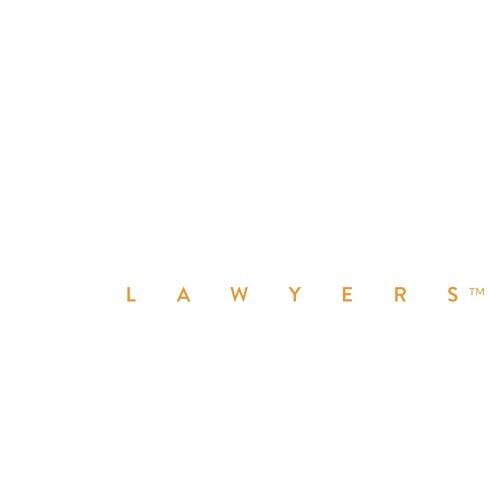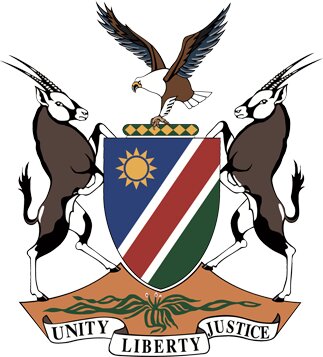Best Civil & Human Rights Lawyers in Windhoek
Share your needs with us, get contacted by law firms.
Free. Takes 2 min.
List of the best lawyers in Windhoek, Namibia
About Civil & Human Rights Law in Windhoek, Namibia
Namibia is a country founded on the principles of democracy, human dignity, and equality, and it has a robust legal framework for civil and human rights. In Windhoek, as the capital city, these laws are actively enforced to protect the residents' rights. The Namibian Constitution, adopted in 1990, is the supreme law of the land and provides a comprehensive bill of rights. Key statutory provisions include gender equality, freedom from discrimination, freedom of expression, and the right to a fair trial, among others. These laws are intended to safeguard individuals from violations and promote equality and justice within the society.
Why You May Need a Lawyer
People might need legal assistance in the field of civil and human rights for various reasons. Common situations include:
- Experiencing discrimination based on race, gender, age, or disability.
- Facing unfair treatment in employment regarding wages or wrongful termination.
- Seeking asylum or dealing with immigration issues.
- Wanting to understand your rights after a wrongful arrest or detention.
- Standing up against violations of property rights, including eviction notices or land disputes.
- Addressing issues concerning family law, such as adoption or child custody battles.
In these situations, a lawyer can provide guidance, negotiate on your behalf, and represent you in court to ensure your rights are upheld.
Local Laws Overview
Namibia maintains several local laws that directly impact civil and human rights:
- The Constitution of Namibia: Provides the paramount baseline for civil and human rights protection, including specific clauses recognizing various fundamental freedoms.
- Labour Act (Act No. 11 of 2007): Protects workers' rights in terms of fair labor practices and conditions of employment.
- Racial Discrimination Prohibition Act (Act No. 26 of 1991): Imposes penalties on acts of racial discrimination and fosters an inclusive society.
- Child Care and Protection Act (Act No. 3 of 2015): Outlines the rights and protection measures for children within the country.
Understanding these laws can help individuals know what protections exist and whether their rights have been infringed upon.
Frequently Asked Questions
1. What are my fundamental rights as a resident of Windhoek?
Your fundamental rights include equality before the law, freedom from discrimination, the right to personal liberty, and freedom of speech and assembly. These rights are protected under Chapter 3 of the Namibian Constitution.
2. Can I represent myself in a civil rights case?
While you are allowed to represent yourself, it is often advisable to seek legal counsel due to the complexity of legal proceedings and statutory interpretations that can impact your case.
3. How can I report a human rights violation?
You can report a violation to the Office of the Ombudsman in Namibia, which has the authority to investigate and provide recommendations. Legal advice from a lawyer can also help in pursuing redress through the courts.
4. Are there laws protecting against gender discrimination in Namibia?
Yes, the Namibian Constitution and additional legislative acts provide legal mechanisms against any form of discrimination, including gender-based discrimination. The Labour Act also includes specific provisions to protect against discrimination in the workplace.
5. What should I do if I am accused of a civil rights violation?
It is crucial to seek legal representation immediately to ensure that your side of the story is fairly represented and to navigate the legal processes effectively.
6. How do international human rights treaties affect Namibia?
Upon ratification, international treaties become part of Namibian law, thus influencing local civil and human rights frameworks by introducing additional protection standards.
7. Is legal aid available for civil and human rights issues?
Yes, Namibia has legal aid facilities to assist individuals who cannot afford legal services, providing representation in cases of civil rights issues.
8. Can a non-citizen claim human rights in Namibia?
All individuals within Namibia, irrespective of citizenship, are entitled to human rights protections as outlined in the Constitution.
9. What role does the Namibian Human Rights Commission play?
The commission monitors and assesses human rights situations in Namibia, promoting awareness and cultural understanding about fundamental rights.
10. Are there protections against forced evictions in Namibia?
Laws protect against unlawful evictions. Any eviction must be accompanied by a legal process, ensuring fairness and adequate notice to the affected individuals.
Additional Resources
For those seeking further information or assistance, consider reaching out to:
- Office of the Ombudsman: For complaints and human rights violations investigations.
- Legal Assistance Centre (LAC): An NGO providing legal advice and representation.
- Namibia Human Rights Commission: Facilitates human rights education and advocacy.
- Local Bar Associations: Offer directories for lawyers specializing in civil and human rights law.
Next Steps
If you require legal assistance in civil and human rights in Windhoek, Namibia, consider the following steps:
- Identify the specific nature of your legal issue to target suitable solutions.
- Contact a qualified lawyer or legal organization that specializes in civil and human rights cases.
- Prepare all relevant documents and evidence that could support your case.
- Engage with legal aid services if financial constraints limit your access to private legal representation.
Acting promptly can make a significant difference in resolving your legal issues effectively and preserving your rights.
Lawzana helps you find the best lawyers and law firms in Windhoek through a curated and pre-screened list of qualified legal professionals. Our platform offers rankings and detailed profiles of attorneys and law firms, allowing you to compare based on practice areas, including Civil & Human Rights, experience, and client feedback.
Each profile includes a description of the firm's areas of practice, client reviews, team members and partners, year of establishment, spoken languages, office locations, contact information, social media presence, and any published articles or resources. Most firms on our platform speak English and are experienced in both local and international legal matters.
Get a quote from top-rated law firms in Windhoek, Namibia — quickly, securely, and without unnecessary hassle.
Disclaimer:
The information provided on this page is for general informational purposes only and does not constitute legal advice. While we strive to ensure the accuracy and relevance of the content, legal information may change over time, and interpretations of the law can vary. You should always consult with a qualified legal professional for advice specific to your situation.
We disclaim all liability for actions taken or not taken based on the content of this page. If you believe any information is incorrect or outdated, please contact us, and we will review and update it where appropriate.
Browse civil & human rights law firms by service in Windhoek, Namibia
Windhoek, Namibia Attorneys in related practice areas.














